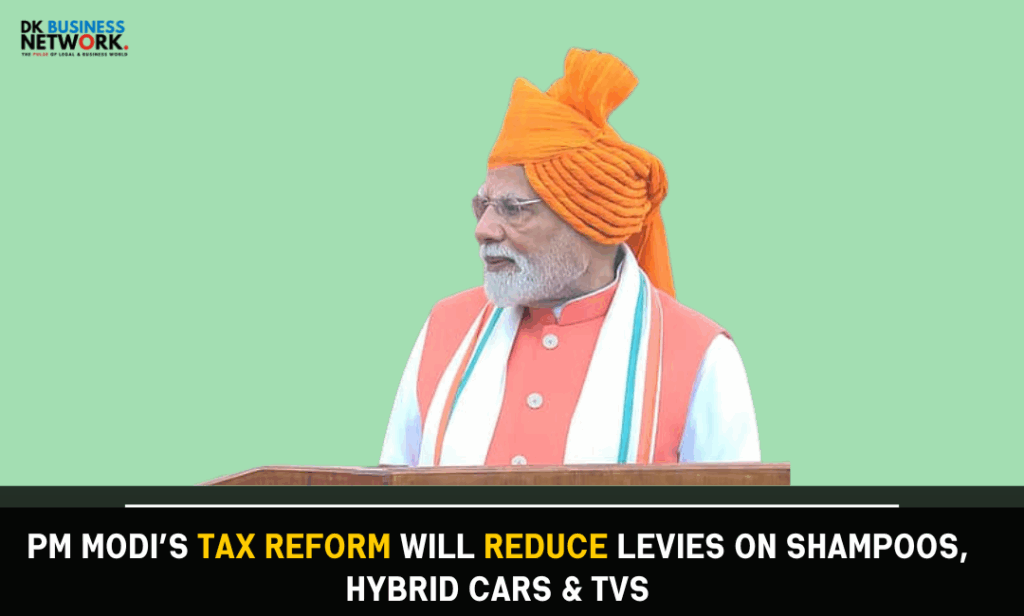DK Business Network
India plans to significantly reduce consumption tax by at least 10 percentage points on nearly 175 products, ranging from shampoos and hybrid cars to consumer electronics. This move is part of Prime Minister Narendra Modi’s tax overhaul initiative, for increased consumption of Indian made products.
The proposal includes lowering the GST on everyday items such as Talcum powder, toothpaste, and shampoo from 18% to 5%. This change will boost sales for companies like Hindustan Unilever and Godrej Industries.
Air conditioners and television sets may see their GST reduced from 28% to 18%, just in time for the Diwali shopping season, which begins in October 2025 when brands like Samsung, LG Electronics & Sony dominate sales.
These proposed tax cuts aim to offset the anticipated decline in exports to the United States by stimulating domestic consumption, enhancing farm incomes, and promoting self-reliance among Indian manufacturers. Additionally, India is looking to reduce consumption tax on essential export items like fertilisers, farm machinery, and tractors, lowering it to 5% from current rates of 12% or 18%. The textile sector, a major exporter affected by U.S. President Donald Trump’s tariff policies, will also benefit from these reductions.
In a favourable development for Japanese carmakers, including Toyota Motor and Suzuki Motor, the Indian government has proposed reducing the GST on small petrol hybrid cars is reduced from 28% to 18%. Lowering the tax on hybrids, which utilise both combustion engines and electric motors, will align it more closely with the 5% GST On electric vehicles.
The Government has also proposed lowering the tax on motorcycles & scooters with engine capacities of less than 350cc. This segment made up 95% of nearly 20 million two-wheelers sold in India last fiscal year by companies such as Bajaj Auto, Hero MotoCorp, and TVS Motor.
However, for larger cars categorised as those longer than 4 meters and with larger engine capacities the GST will increase to 40%, up from 28%. Nevertheless, the government is likely to lower additional levies to maintain the overall tax rate at around 50%.
Additionally, India is considering raising tax rates on items such as coal and services related to betting, casinos, and horse racing. At the same time, the government intends to maintain current levies on carbonated drinks produced by companies like PepsiCo, Coca-Cola, and Reliance Industries, despite calls for reducing these taxes.
Instagram: Click here
LinkedIn: Click here
For Collaboration and Business:dkbusinessnetwork@gmail.com

